Contract Law: A Comprehensive Analysis of Express and Implied Terms
VerifiedAdded on 2021/06/14
|5
|821
|202
Essay
AI Summary
This essay delves into the realm of contract law, focusing on the critical distinction between express and implied terms. Express terms are those explicitly stated by the parties involved in a contract, while implied terms are not explicitly mentioned but are considered part of the agreement, either through statutes or court interpretations. The essay highlights the importance of adhering to express terms, with potential consequences for breaches. It also examines the two types of implied terms, implied by statutes and implied by courts, and illustrates them with case studies like Esso Petroleum v Mardon and Shell UK v Lostock Garage Limited. The essay further categorizes implied terms into custom, facts, and law, referencing cases such as Hutton v Warren, The Moorcock, and Liverpool City Council v Irwin to explain each category. The conclusion summarizes the key differences between express and implied terms, emphasizing that while express terms are explicitly agreed upon, courts play a crucial role in determining the validity and application of implied terms. This essay provides a comprehensive overview of the legal principles governing express and implied terms, making it a valuable resource for students studying contract law.
1 out of 5
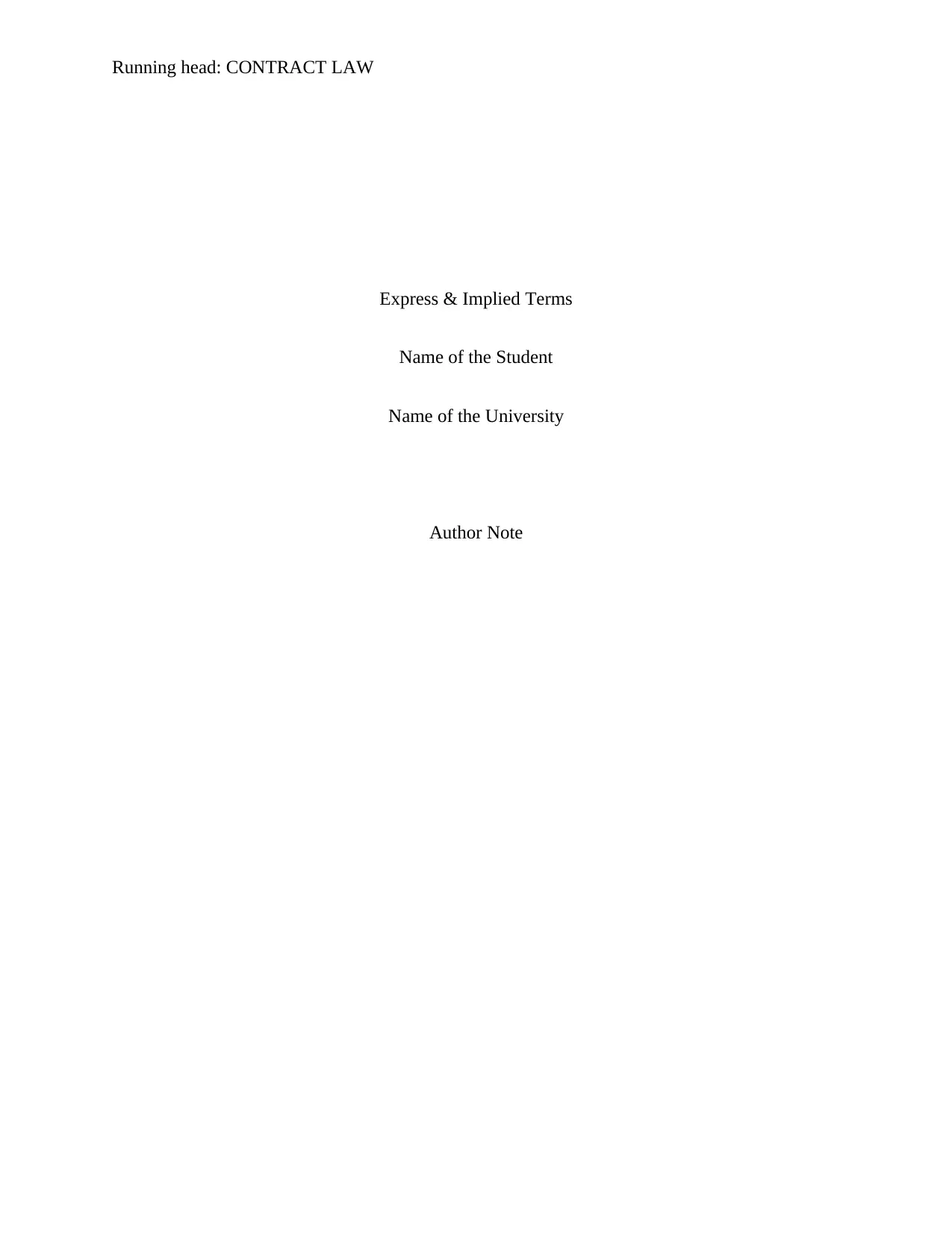
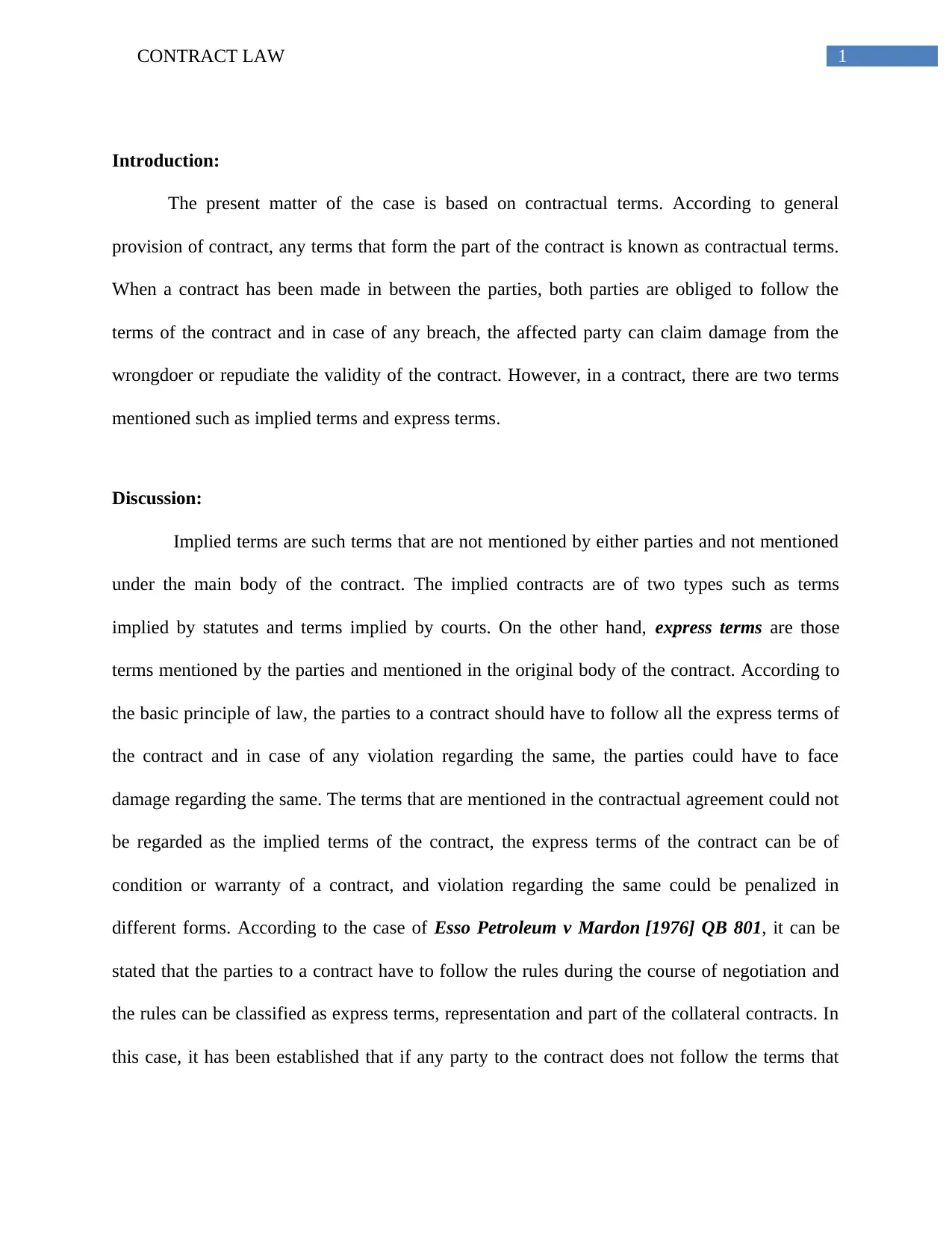
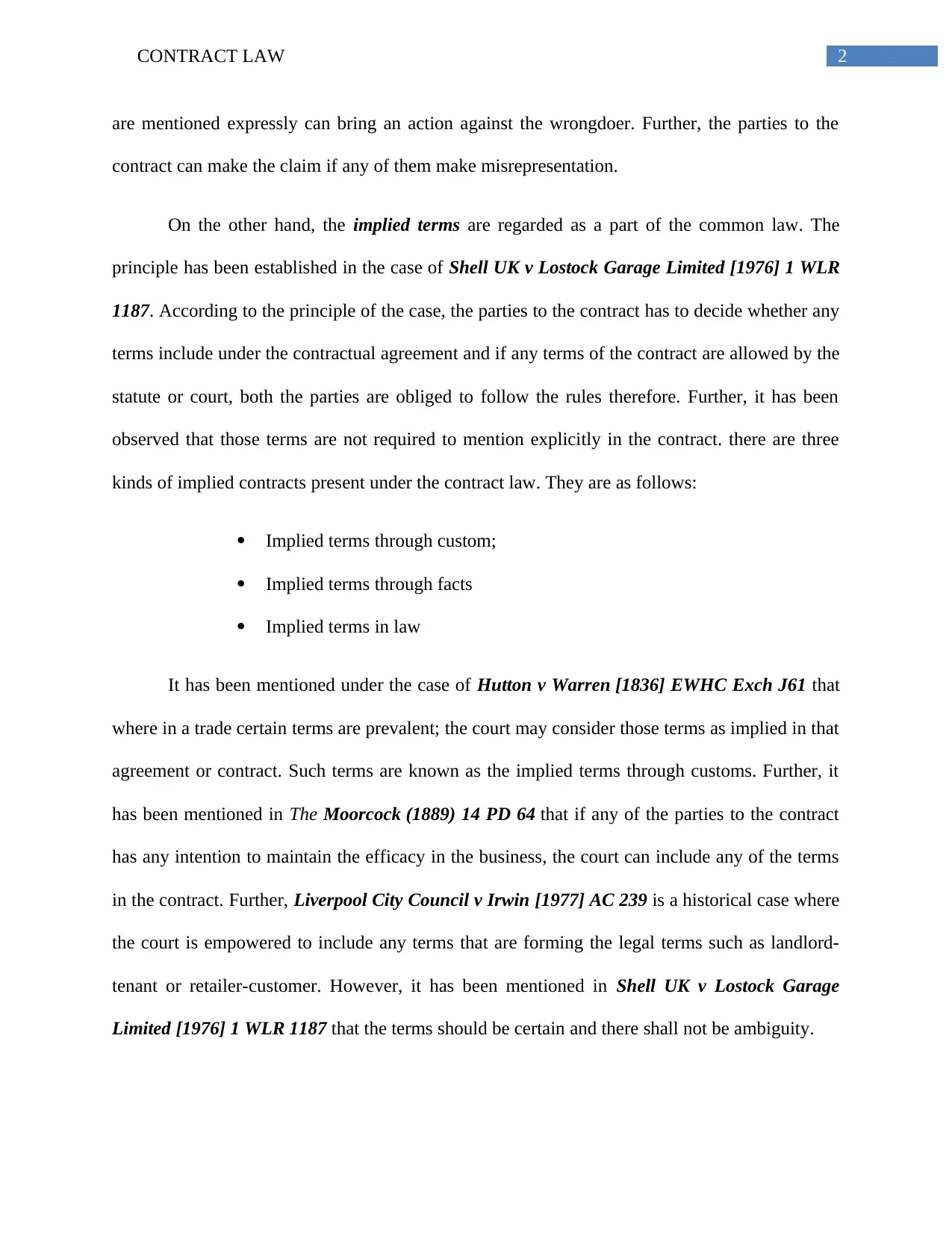

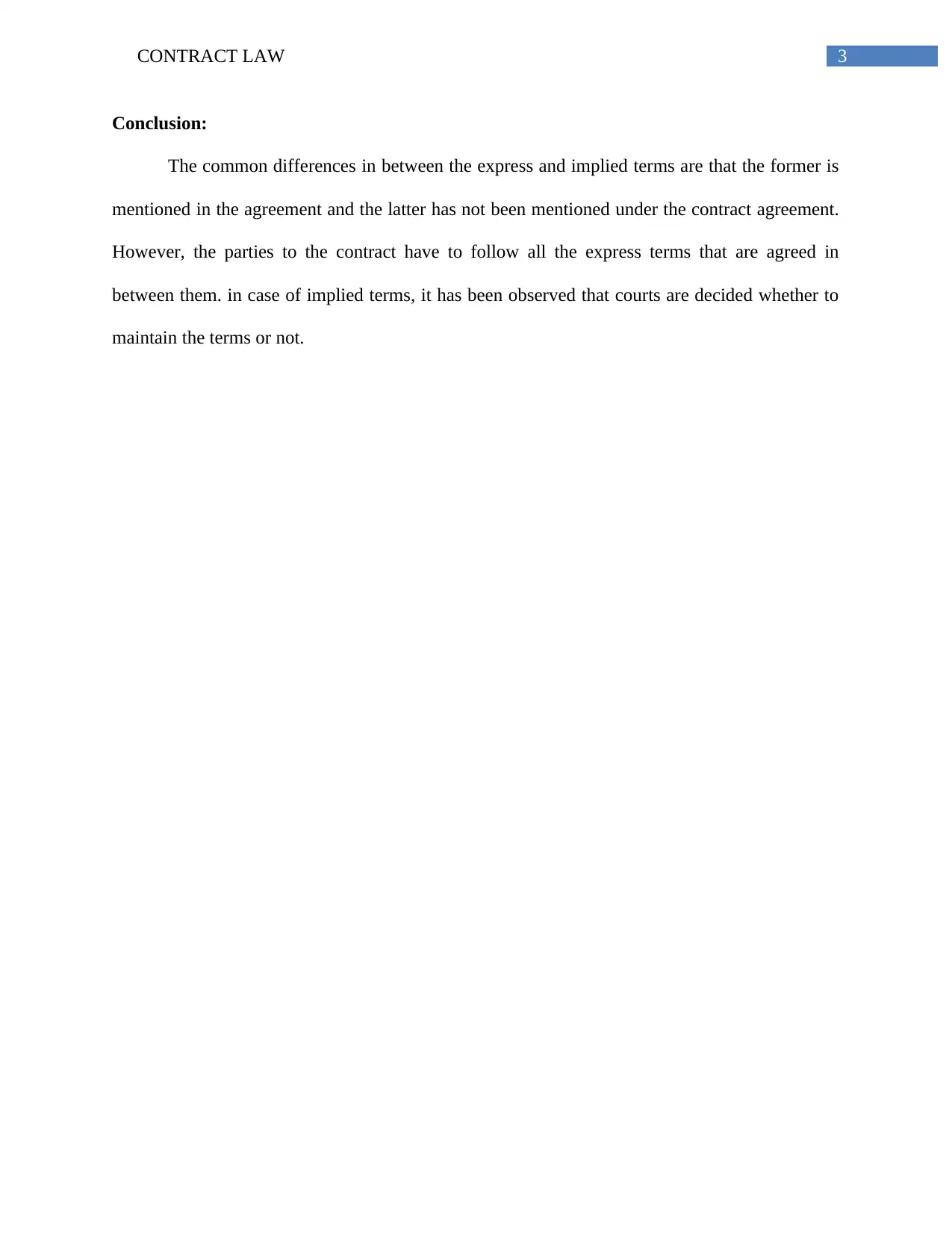
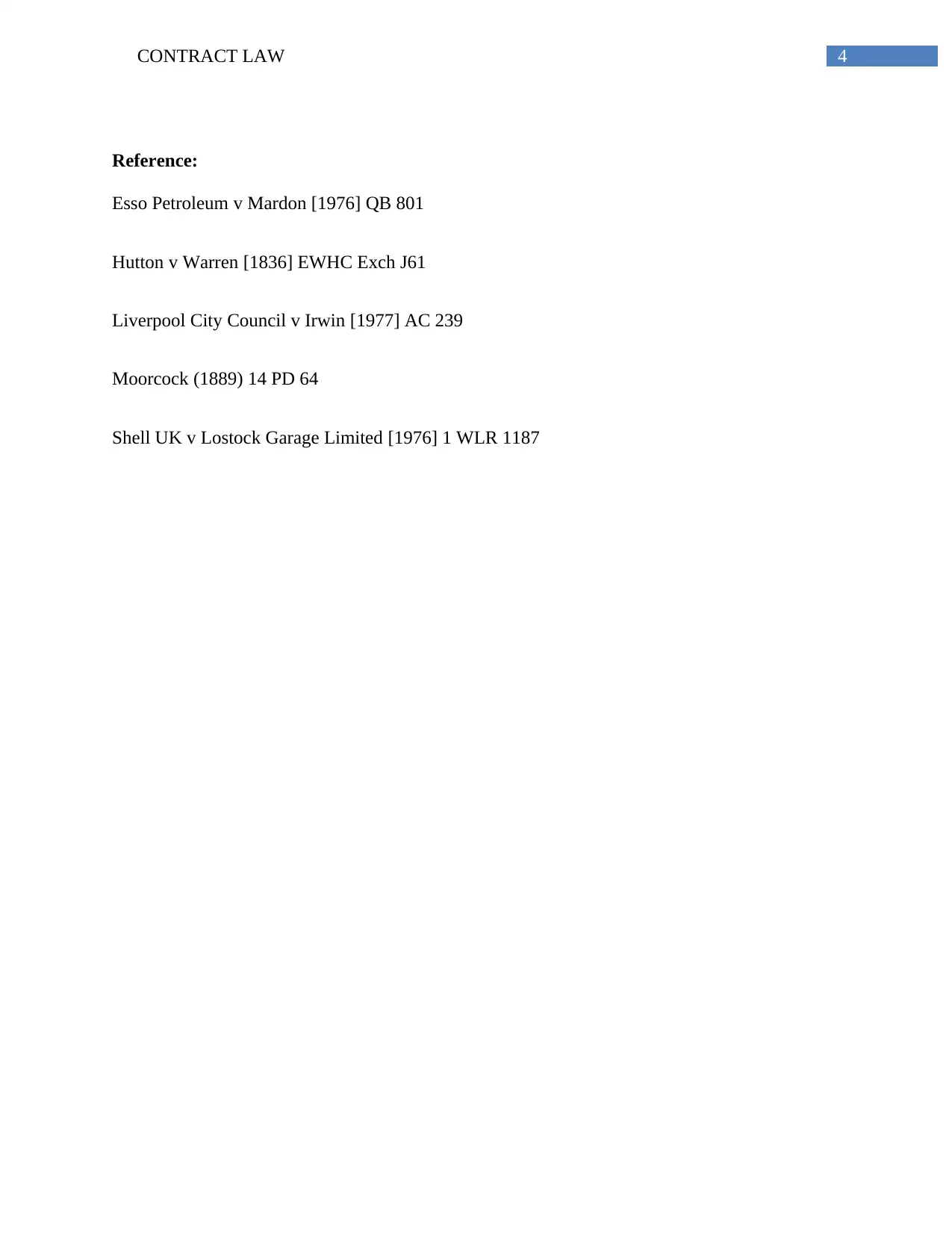






![[object Object]](/_next/static/media/star-bottom.7253800d.svg)